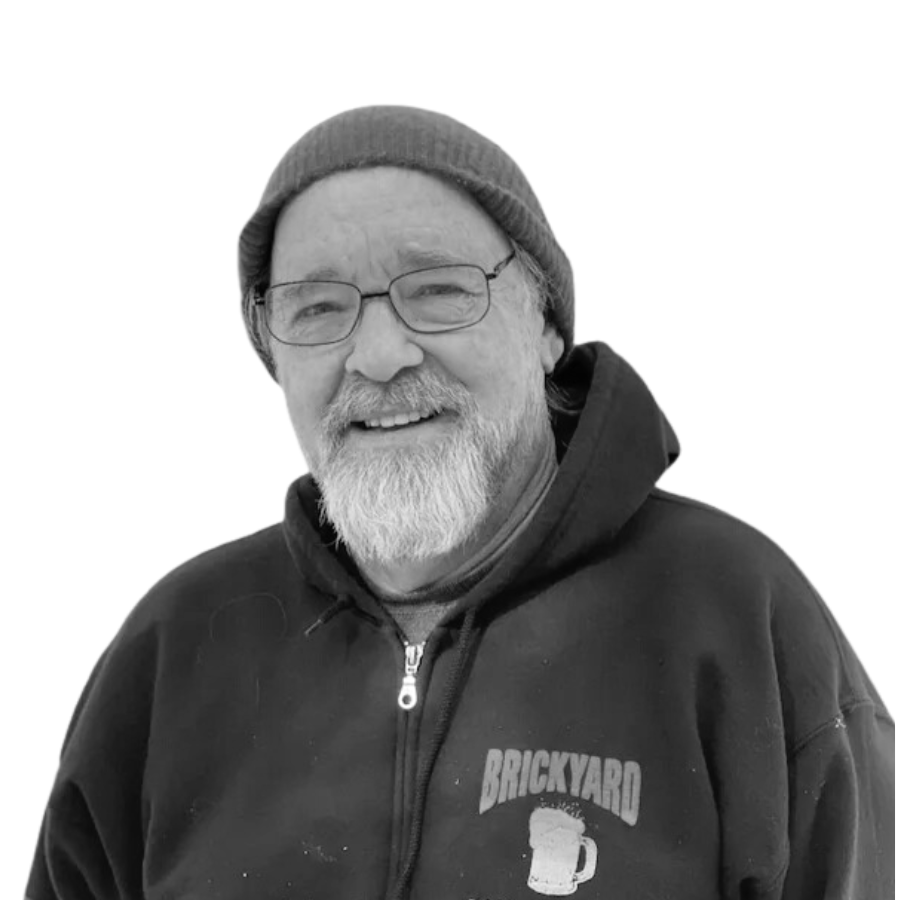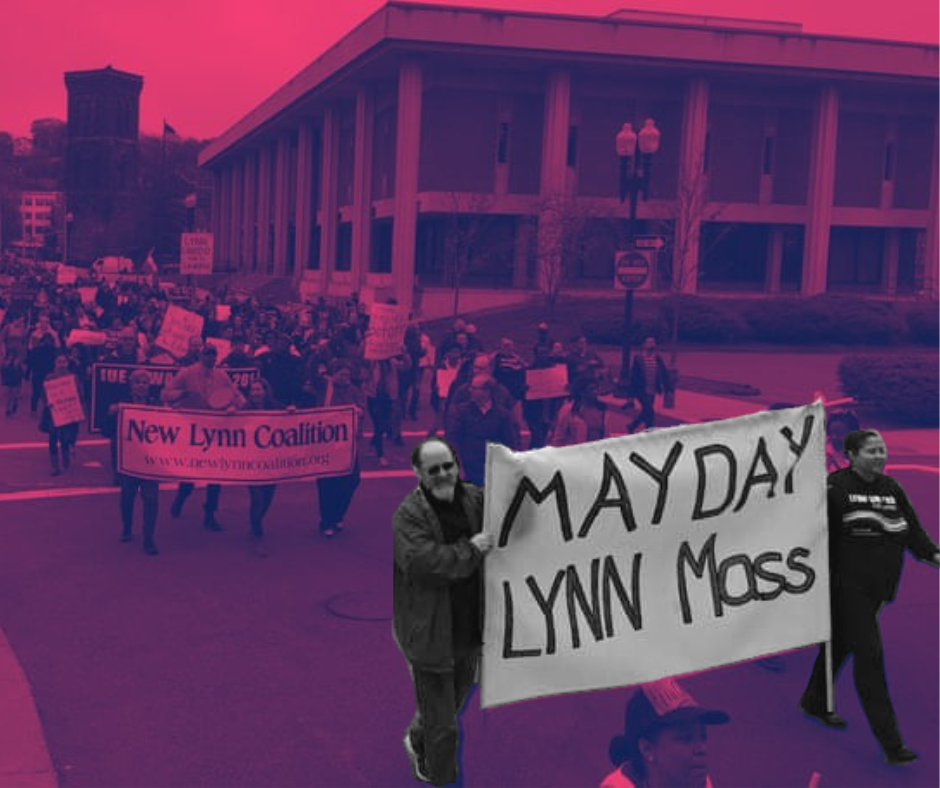The first part of this article introduced the history, structure and funding of the New Lynn Coalition. This second part addresses further challenges of building working-class power that is independent of other forces and the ideological work of building a working-class identity in this period. The 10-year-old Coalition is trying to build a durable alliance of labor and community groups that can exercise local power. In the electoral arena, we’ve built our influence through focused work on issues.
To endorse or not? Power and pitfalls
Before each municipal election we determine the key projects we want moved post-election. We have been very successful in focusing debate on the issues that need to be highlighted. In 2017 we took up the fight of the Lynn Workers Center, and then the North Shore Labor Council, to pass an Anti-Wage Theft Ordinance in the city. The full strength of our partners came to bear. The Workers Center went after individual violators. The Labor Council required support of the ordinance for their endorsement. Partners Mass Senior Action and Neighbor to Neighbor raised wage theft at their forums. Demonstrations by the building trades unions and allies at rat contractors highlighted abuses. By the end of the campaign, it was being raised everywhere, and shortly after the election the ordinance was passed, complete with an enforcement Advisory Committee dominated by our allies. Only the futile Chamber of Commerce was left to testify against it.
A local councilor who initially stated that the biggest problem in the ward was goose crap messing up the parks ended up talking about affordable housing and voted for the city’s Affordable Housing Plan, which was influenced by our affiliates. Our partners leading the fight for an unarmed Community Care Team won $500,000 in 2021 for an initial effort (now stalled). Our electoral focus on affordable housing in 2022 helped prompt our new mayor to create an affordable housing trust fund, with our Organizing Director and other allies likely to be a leading force on its board.
In its way this is working very well.
The issues we raise help allies get elected, such as State Representative Pete Capano, a New Lynn founder and former president of my local union, IUE-CWA 201. The president of the City Council is a former Local 201 vice-president. An AFT staffer serves as a Councilor at Large, and progressive African American and immigrant candidates have started to crack the City Council and School Committee, although with more losses than wins so far.
But we don’t have the kind of clarity in electoral wins and losses as a measure of our relative political power that we might have if we endorsed candidates as do DSA, Our Revolution, United Working Families in Chicago or the Richmond Progressive Alliance. The candidates our affiliates support do not have an explicit common program to which we can command adherence, and are not selected by a unified effort of our partners.
There are reasons for this. Several of our partners have their own endorsement processes and have 501(c)(4) or (c)(5) status (c5 being the tax status for unions). Some are part of statewide organizations to which they answer (including the unions).
Different locations, different views
Contradictions between immigrant-based community organizations and our union partners can be sharp. A candidate with a powerful immigration story who was also a small businesswoman refused to endorse raising the minimum wage, seeing it as unaffordable. She was endorsed by one partner group, and was opposed by the unions. A white union leader and community activist from a multi-racial family who won some 90% of the Black vote was opposed by many of the community groups in favor of an articulate immigrant who had little track record of activism in the city, but who had been a state house staffer and earned state and national support from groups trying to increase representation of women of color.
Charter schools are an especially divisive issue. Unions correctly see them as an attempt to destroy public education and privatize a public good, so candidates of color who are charter supporters don’t get union support. But even many New Lynn leaders want their children to attend the small classes in the beautiful new building overlooking the city instead of the crowded classes in any of the 100-year-old buildings of the Lynn Public Schools. And despite progress we are making with the Family Liaisons, diverse hiring and a progressive teachers union, parents of color have had bad and racist experiences in the Lynn schools in the past. Becoming an electoral vehicle would jeopardize the unity New Lynn has carefully constructed.
It is also true that DSA and others who elect members to public office are themselves challenged when their member officials are unwilling or unable to adhere strictly to their organization’s politics. Serving in office and getting things done, representing all your diverse constituents, is a very different thing than running for office. The experience of socialist parties has historically featured contradictions between parliamentary groups and the rest of the party’s base and leadership.
A common endorsement practice from New Lynn is not in the cards at the moment, but might be revisited in the future.
Building working-class identity as a path to power
Several years ago I asked a labor studies class I was teaching to define the working class. “Union telecom workers like me.” “The immigrants who do hard work at the airport.” “Factory workers, but there aren’t many of us anymore.” While the UMass Boston students were working-class, they had no common understanding of that, and their definitions often excluded each other, along with teachers and others.
This is something we address consistently. Our Board includes people with roots in the Congo, Haiti, Lebanon, Pakistan, Philippines, Guatemala, the Dominican Republic, Colombia, Peru, and Honduras, as well as African Americans from the US South, Jewish Americans and whites from earlier Irish and other settler migrations. The restructuring of the US working class by race, gender, nationality and industry was identified many years ago by Jon Liss and Rishi Awatramani in their discussion of the new working class, and influenced us from the beginning.
The construction of a working-class identity is part of our conscious effort to raise the upward spiral of political consciousness. Put another way it is part of our work in the kind of period that Antonio Gramsci calls a “war of position,” a fight for hegemony.
Immigrants to Lynn have transformed the city from about a third peoples of color to two-thirds within about 25 years. Most industrial jobs, including the good-paying union jobs at GE, have migrated or been eliminated by increased productivity. Most newer immigrants make their way in landscaping, hospitality, construction and nursing homes.
In a period of building a working-class identity comparable to that described by E. P. Thompson in The Making of the English Working Class, Lynn from 1830-1870 had dozens of newspapers and campaigns for labor rights, women’s rights, health diets, temperance movements, and clashes between new Irish immigrants and previous settlers. The struggle over abolition (and the place of Native Americans to a lesser degree) gave the period its flavor, along with religious conflict and revival. We see similar challenges and opportunities today.
To maximize participation by all the members of our board and underline our commitment to equality, we hold our monthly board meetings with professional translation. We attempt some political education at these meetings on a regular basis, even for 15-20 minutes. We might have a discussion about “What is the working class,” since it is in our mission statement, drawing on material from Michael Zweig’s book The Working Class Majority. Class differentiation surfaces within immigrant communities as well as the city at large.
We might ask a Board member to talk about developments in their country. When it was finally publicly admitted that the CIA and Portuguese security forces assassinated Patrice Lumumba, we asked a Congolese member to explain to the rest of us who Lumumba was and what role he played in Congo’s struggle for independence. When Peru had three presidents within a couple of months, we asked a Peruvian board member to explain the history of events there. Everyone learns and our leaders, who are patriots for their homelands, love to be asked to teach the rest of us.
We also have political education discussions based on our own challenges. We evaluate the role of new elected officials as they work with or against us, and figure out winning tactics. As we’ve gained influence, our members have been appointed to city boards and commissions, so we have Board discussions to develop guidelines on how to navigate those positions effectively and use them to build independent working-class power in the city. We’ve explored lots of options: demanding training so our people can function on the boards/commissions; pushing to expand working-class and immigrant representation; trying to change the purpose of the boards; assessing who are allies and who are not, etc. Most fundamentally, we look at how we can bring our people into the deliberations, report back and involve our base. In some cases we have decidedthat participation in that particular board or commission is simply not useful.
Annual strategic planning (facilitated by the UMass Lowell labor extension program) requires us to pause and consider all of this. I had previously only seen mission statements collect dust. But ours has been repeatedly amended: to include the unemployed as part of the working class, to add explicitly fighting white supremacy, to identify outreach to small businesses, etc. Strategic planning is also where we set collective goals for the year.
Our collectively determined demands focus our annual May Day event. Since immigrants recovered the workers’ holiday in 2006, we have sustained it as a day of celebration and struggle—and a declaration of independence for the working class as we unite with others.
We are building a New Lynn with an independent political organization based in the working class and peoples of color. Our strategic choices may be right or wrong. We would love to hear more about other similar or dissimilar projects.
Did you enjoy this article?
We're in the middle of our annual fund drive, and this year we're building our own internal infrastructure for subscriptions, meaning more of every dollar pledged goes to fulfilling our mission. Subscribe today to support our work and be a part of Convergence's next evolution.

